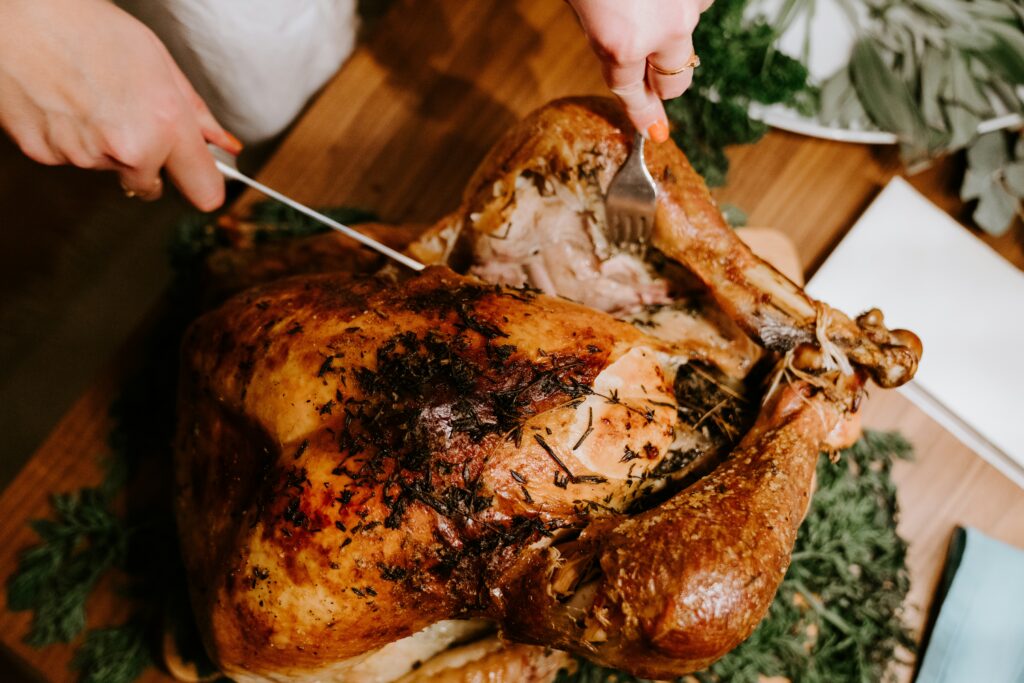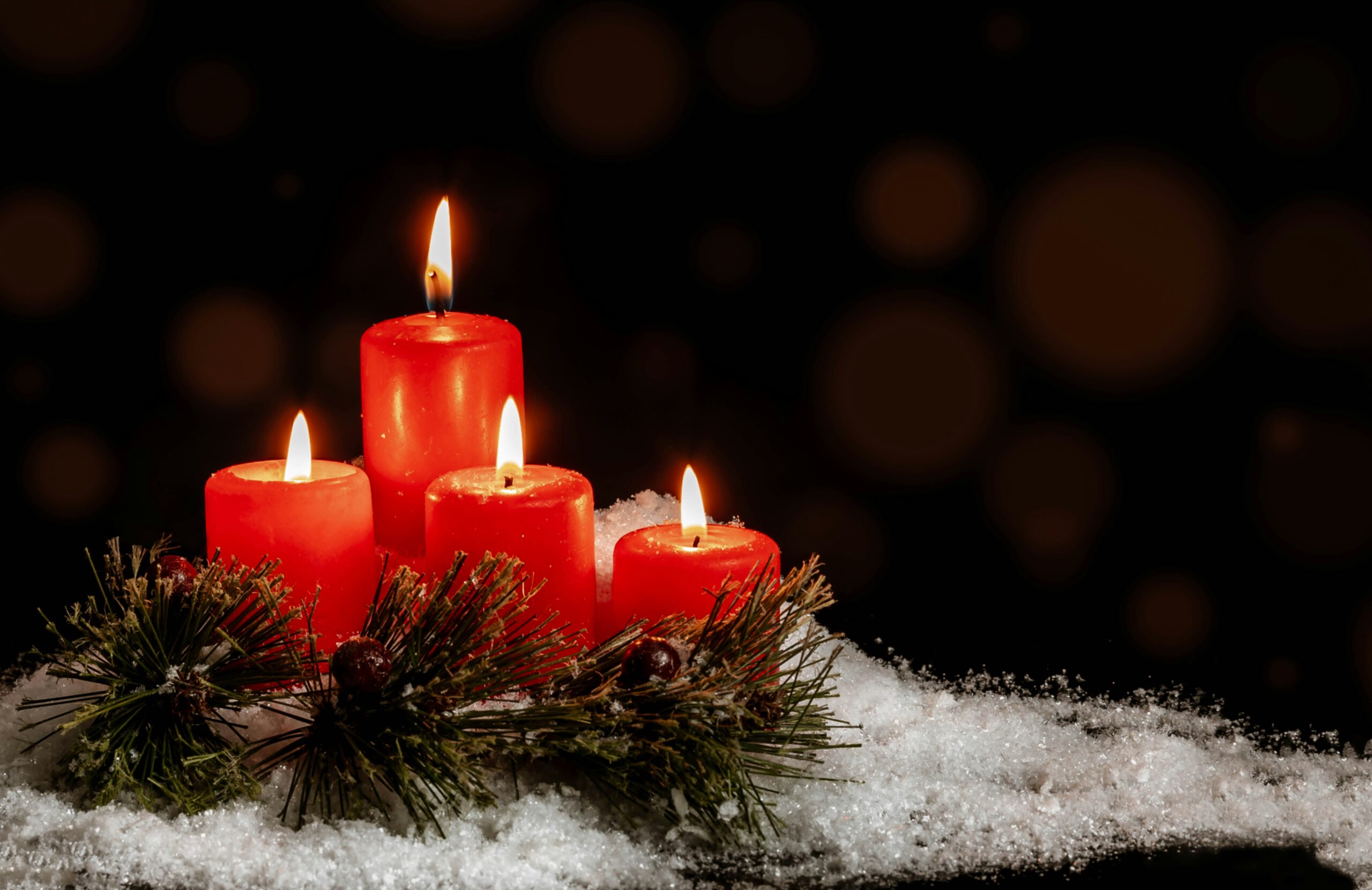The holiday season brings both warmth and complexities. Behind the twinkling lights and festive music, many people—particularly those in recovery—face unique challenges as they navigate family dynamics, manage heightened stress, and work to protect their wellbeing during this emotionally charged time of year.
To provide guidance through these challenges, we sat down with one of our expert family therapists, Jonathan Platt. In this conversation, he shares expert insights and practical strategies for maintaining mental health and especially recovery during the holidays.
Whether you’re supporting a loved one in recovery or navigating your own journey, you’ll find valuable perspectives on balancing family traditions with personal wellbeing.
Q: “The holidays can be a beautiful period, but also one that brings up a lot of stress and conflict within families. Why is it that the holidays bring up conflict?”
Jonathan: For many people, holidays come with a lot of expectations, hopes, and preferences. These hopes emerge in a variety of ways, and often manifest in questions such as: what traditions are we going to honor? How do we cook the turkey? How are we going to set up the dinner table? With all of the pressure, it can be easy to want everything to go perfectly, which can put a lot of extra weight on the situation.
Along with this, there’s pains from the past that become more pronounced in these times. Underlying conflicts that have gone unaddressed for years between family members can suddenly come up, being front and center. A simple argument may arise regarding how to cook the turkey, for example, but we’re actually dealing with a deeper, unresolved conflict from the past that was never properly addressed.

Q: “We often hear about people in recovery facing challenges when returning home. Could you help us understand this pattern?”
Jonathan: This relates strongly to people’s developed roles within their family. Everyone takes on a role in different ways, and this is usually subconscious and unspoken. For example, an oldest sibling may have commonly taken on a role as the leader within the family, while a younger sibling may have taken on a role as “the baby.”
Other dynamics, such as mental health issues and substance abuse can also play into these roles. For example, let’s say that one child within the family was struggling with substance abuse in high school. During that time, the rest of the family took on different roles to adjust to this problem. Perhaps one sibling distanced themselves, while another leaned in to help. Perhaps in this situation, the mother became hyper-focused and concerned about the child with addiction, which made the other siblings feel that they were on their own. Even if the child finds sobriety, the effects of these various roles could continue in family dynamics for years to come.
When children eventually leave home, they may break free from their childhood roles and familial dynamics. When they come back home, say, for the holidays, it can be easy to fall back into old roles that were taken on, even decades earlier. Old habits “die hard” individually, but they also “die hard” collectively within a family.
Q: “What are some common triggers in holiday gatherings that might challenge someone’s recovery journey?”
Jonathan: Whenever I work with someone in addiction recovery, there is usually deep family of origin pain that played a role in the development of their choice to use. This pain can stem from many different scenarios; perhaps one individual saw their parents using drugs, and in their confusion, they learned to cope with their pain by also using. For someone else, growing up in an ultra-strict home may have caused them to rebel against their parents, leading them into the wrong crowd and to using substances to cope.
Therefore, when someone in recovery interacts with their family of origin during the holidays, triggers from the past can be set off. For an alcoholic, something as simple as seeing a parent drink could trigger the temptation to use again. Triggers can also arise from more complex family dynamics as well. Perhaps an individual in recovery has a father who is controlling and demanding, and that behavior has not changed. Though the individual has found healing and recovery in their adult life, being around that parent again can make them feel like they are 16 again, triggering thoughts of coping in similar ways that led them to addiction in the first place.

Q: “Given all this, how can individuals ensure that the holidays don’t jeopardize their recovery journey?”
Jonathan: I believe that it is crucial for individuals in recovery to have conversations around needs versus wants with their family members. If an individual is newly in recovery, for example, they may need to be in an environment where there is absolutely no drinking during the holiday festivities. Having this conversation with family members before the holiday event may be challenging, but it can assist the person in recovery to articulate what will be most helpful for them at this point in their journey. Hopefully, a conversation such as this could lead to compromise, where the family can also identify their wants and needs as well.
Q: “Is there a way individuals and their families can balance traditional holiday activities, like social drinking, with creating a supportive environment for recovery during the holidays?“
Jonathan: To continue with the thought above, everyone in the family has needs and wants. For some people within the family, wants may feel just as valid as needs, especially when it comes to holiday traditions! Lets say for example that a family has held a tradition of having hot toddies (a festive alcoholic drink) after their holiday meal every year. For the person in recovery, avoiding this tradition is a need, and they may request that the tradition be put on pause to accommodate the recovery journey. Another family member, however, may feel that this tradition is essential and cannot be paused, highlighting their own need. There are valid emotions behind those needs on both sides, and hopefully, a compromise can be reached: how about this year, we go with virgin hot toddies?

Q: “What about people who are separated from family – whether by choice or circumstance? How can they create meaningful holiday experiences?”
Jonathan: In family therapy, we talk about legacy – things passed down from our family of origin, both good and bad. We also study loyalty – what we stay loyal to from the legacy passed down.
When we see family through this lens, we get to choose what we want to be loyal to. Even the most dysfunctional families have some positive legacies that have been passed down. Therefore, what I would recommend is to identify traditions and values imparted by your family that you want to hold onto and practice those during the holidays, even in small ways.
For everyone, it is important to find community beyond family as well. Bringing friends into the values and traditions you are choosing to hold onto can be incredibly special. You might say, “this is something I used to do with my parents, how about we do it together?” This can create a sense of belonging and connection that we all need all of the time, but especially during the holidays.
Q: “What concrete strategies can you share for managing holiday stress without turning to substances?”
Jonathan: First, let’s start with grounding techniques. These are researched and scientifically proven to help us lower anxiety levels, to help us deal with stress, to help us process our triggers.
It includes doing things like body scanning. You can ask yourself questions such as, “where am I feeling tension in my body? What emotions am I feeling? When have I felt this feeling before?” You also get in touch with your senses — identifying what you can see around you, feel around you, smell around you. This helps us become aware of what’s happening in our bodies — because sometimes we don’t even realize how much stress we’ve built up that is causing the triggers to develop.
Of course, deeper issues may require journaling and therapy to unpack, but in the moment, grounding is a simple way to come back to reality and feel safe and secure.
Along with that, identifying one to two family members or friends that are safe — people who you can go to and process what you’re feeling, even just a quick text, saying something like, “Hey, I’m feeling overwhelmed today by my feelings, and I just need to vent”. That can make all the difference, and remind us that we are not alone.
Q: “For anyone who might be struggling with recovery during the holidays, how can they find support?“
Jonathan: We often get hurt in relationships, and many of our problems stem from that relational pain. However, we also heal through relationships and community, although that can look different for each person. I always encourage people to find support networks, as we cannot thrive in isolation.
For example, for someone of faith, participating in a faith community is important not only for spiritual reasons, but also for social and emotional support. For others, there are many organizations, clubs, and common hobbies to get involved with where a community can be formed. We need this because while we may get hurt by people, we also heal through human connection.

Q: “Does RevCore also offer support for healing in a community?“
Jonathan: Absolutely, in multiple ways. In our drug and alcohol treatment program, groups are a huge component. Participants walk alongside each other for an extended period, supporting one another and growing together. We help people build support networks and address communication issues, the ways that we project past pain into the present, processing legacies and loyalties, etc.
On the mental health side, we offer individual, couples, and family therapy. These provide space for clients to process not only current stressors, but also deeper issues tied to childhood and the ways various relationship dynamics and communication styles have developed over the years. We help clients break apart their current life patterns, examine them, and reshape them into a preferred narrative – a healthier way of living, communicating and being, both within themselves and their relationships.
Q: “Thank you so much for sharing your insights, Jonathan. If someone needs support with recovery during the holidays, how can they connect with RevCore?“
Jonathan: Our doors are always open for those needing help, whether it’s for addiction recovery, mental health, or navigating difficult family dynamics during the holidays and beyond. Please don’t hesitate to reach out. Call us anytime at 718.514.6007 or email info@revcorerecovery.com. We’re always here to give the support, community, and tools you need to heal.
